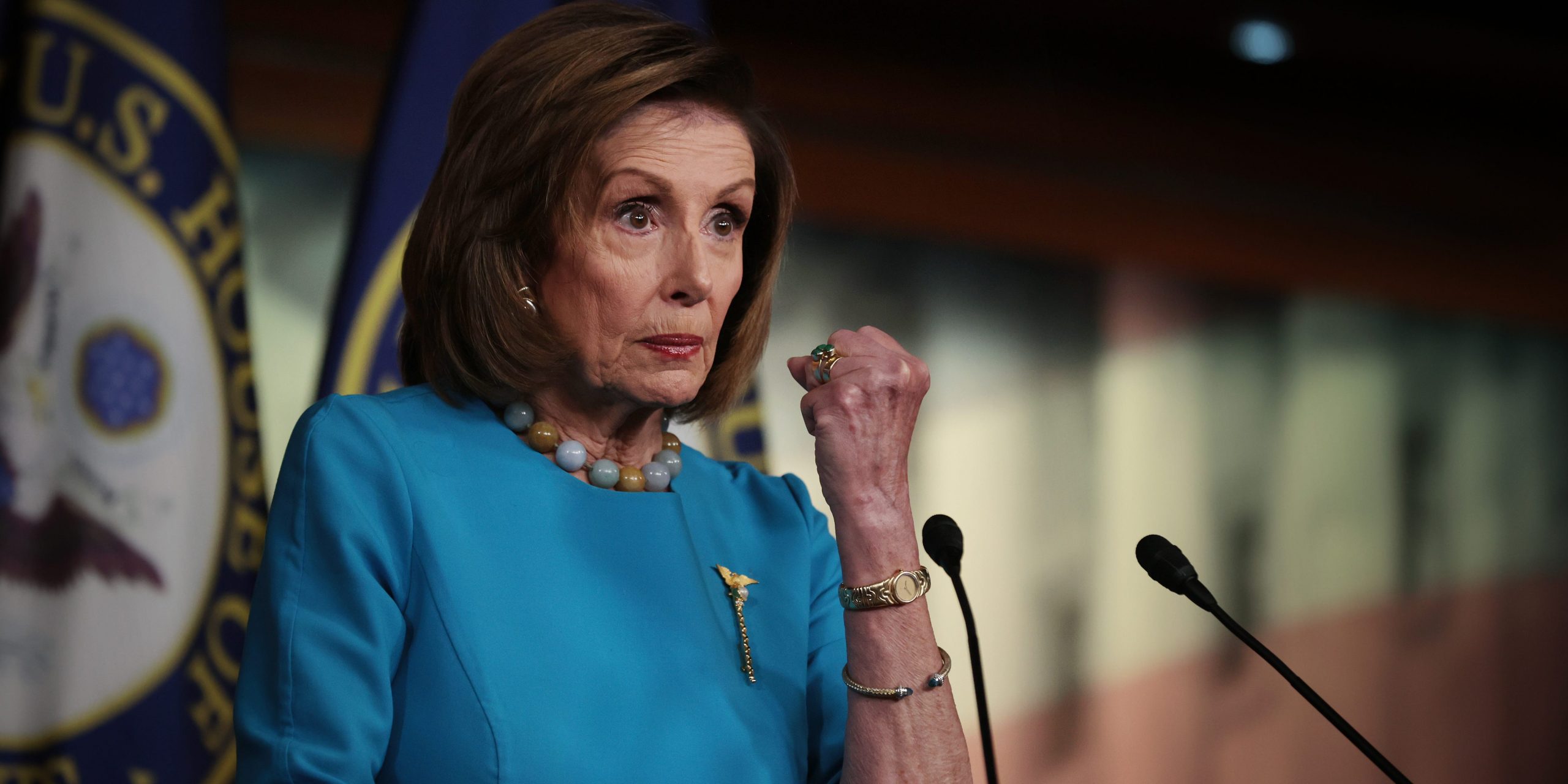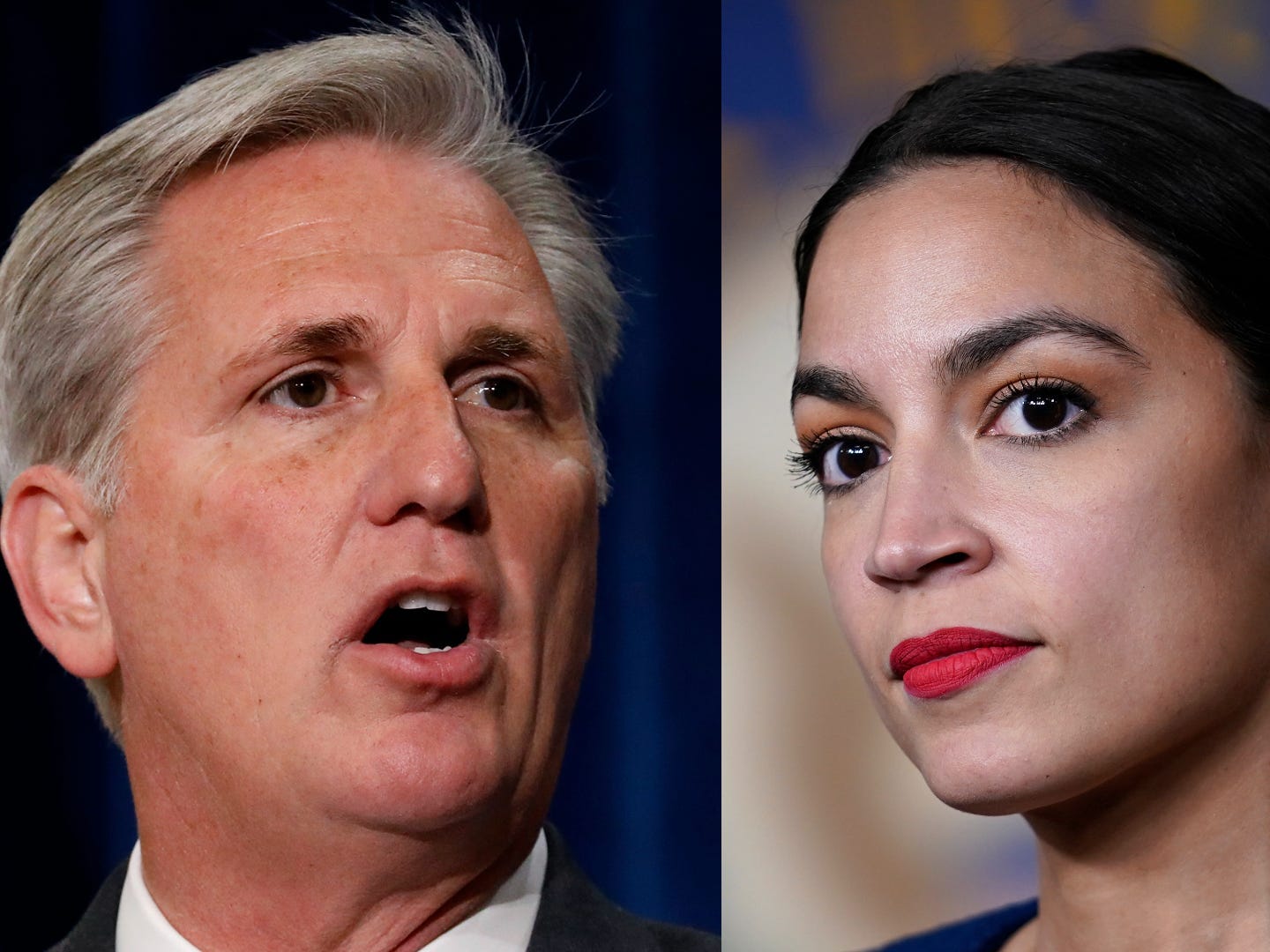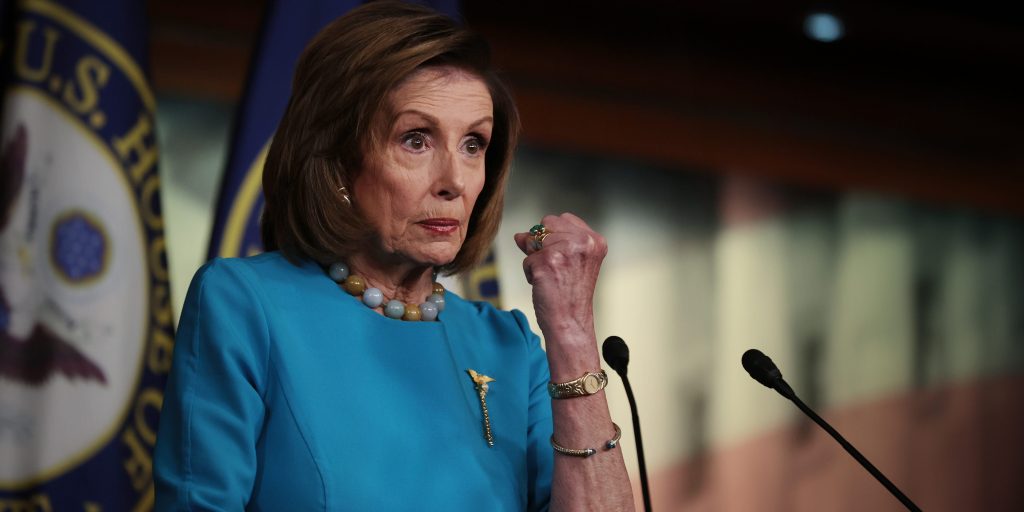
- House Democrats passed Biden's $2 trillion social spending bill Friday morning.
- Democratic infighting nearly killed the legislation multiple times, then an eight-hour speech by GOP leader Kevin McCarthy prevented a Thursday night vote.
- Now it heads to the Senate, where Joe Manchin could still delay the bill — or tank it completely.
House Democrats passed a $2 trillion social spending bill carrying the bulk of President Joe Biden's economic agenda on Friday morning, barreling past united GOP opposition and sending it to the Senate, where Joe Manchin of West Virginia could still force it to undergo a major overhaul.
The legislation cleared the chamber a near-party line vote of 220-213. After a handful of centrist Democrats in the House threatened to vote against it throughout the fall, only one, Rep. Jared Golden of Maine, joined GOP ranks in voting no.
Speaker Nancy Pelosi of California hailed passage of the Build Back Better Act, saying that its legislation that will form "the pillar of health and financial security in America."
"It will be historic in forging landmark progress for our nation," she said in a floor speech ahead of the vote.

After months of delays, an eight-hour speech stalled the bill one more night
Democrats had intended to swiftly approve the bill on Thursday evening after resolving months of intraparty feuds. But House Minority Leader Kevin McCarthy of California upended that timetable with an erratic eight-hour speech that variously touched on Elon Musk, China, and America's withdrawal from Afghanistan.
McCarthy characterized the Biden bill as a partisan boondoggle that would swell the federal deficit. "Every page of all this new Washington spending supports more waste, fraud, abuse, and corruption," he said. "This bill is wrong on the merits."
McCarthy's stalling tactics amounted to a fleeting stretch of obstruction, though it deeply frustrated Democrats, who jeered him on the floor and trashed him afterwards. He ultimately broke a record that Pelosi once held for the longest speech in House history.
At one point, McCarthy argued that Americans didn't elect Biden to act like another FDR, the legendary president whose New Deal strengthened the social safety net during the Great Depression. It prompted Rep. Alexandria Ocasio-Cortez of New York to shout, "I did!"
Friday's sprawling bill is designed to affect many aspects of American life. It would set up universal pre-K and renew monthly cash payments to the vast majority of American families for another year. It would expand Medicare to cover hearing services, establish federal prescription-drug price controls and provide child-care subsidies.
The bill would be paid for with a bevy of tax hikes on the rich and large firms currently paying little or zero in federal taxes, including a corporate minimum tax and a new surtax on multimillionaires.

Manchin remains a wild card
The legislation now faces an uncertain future in the Senate, where Democrats need all 50 senators to give a thumbs-up. Manchin hasn't committed to backing the bill yet, and could still delay or sink it in the weeks to come.
The House broke a monthslong deadlock of blown deadlines after new data from the Congressional Budget Office swung a group of centrists to support the bill. In that data, the CBO found the bill would grow the federal deficit by $367 billion. But its projection didn't factor in revenue gained from stepped-up IRS enforcement, a key source for new money within the measure.
That estimate is less growth to the deficit than under Biden's infrastructure package focused on roads and bridges, a bipartisan, less contested bill that he signed into law on Monday.
The bill — once pegged at a cost of $3.5 trillion — endured several near-death experiences thanks to Democrats' tiny three-seat majority in the House. In August, House centrists jeopardized its passage by demanding a separate vote on the infrastructure package focused on roads and bridges.
House progressives balked, and used the infrastructure bill as leverage to prod the centrists into backing the social spending bill. They relented late last month, clearing its path to Biden's desk on November 6, with the CBO report sealing the deal for them.
As it heads to the Senate, Manchin has repeatedly warned about the prospect of the bill contributing to rising prices across the board. But economists say the inflationary impact will be limited since it's mostly financed.
This story will be updated.
